
The Dyslexia, ADHD
and DCD-Friendly
Study Skills Guide
Tips and Strategies for
Exam Success
Ann-Marie McNicholas
Foreword by Henry Burscough

Contents
Foreword
Henry Burscough
From the first time I met Ann-Marie I knew that my run of bad experiences in education was over! Not only was Ann-Marie warm and welcoming, but for the first time during my education I actually felt like someone cared and understood my learning needs. I was diagnosed with dyslexia and dyspraxia during my time at high school. I really struggled with concentration and getting information from my head to the page. I always felt I was a lot better when receiving information orally and which was rarely an option when I was at school.
I met Ann-Marie at the start of my sixth form college journey. My experiences in school hadnt been great. I felt that the support and knowledge wasnt there, nor was there time to deal with my additional needs. When it came to studying, I had absolutely no idea how trying different revision and studying techniques could make such a difference to my overall learning. I was constantly feeling like I couldnt achieve anything, constantly stressed and nowhere near achieving my full potential.
All these things changed when I started working with Ann-Marie using a lot of the strategies and tips that are explained in this book.
An example of one of these tips was changing my attitude from I cant do to I can do. The book has some great visual aids and quizzes to help you work on this. Smart learning made me realise that I was able to succeed, even in what I thought were my weaker areas, by using mind maps and putting them into logical order.
Another great tip for me was reading aloud. This enabled me to better process the information and helped me visualise what I was reading. Other things I found really useful were the use of coloured overlays and breaking the text up when reading it as well as taking regular breaks when needed.
I would recommend any young person who is struggling with their studies to give this book a read (as well as parents and teachers) as there is a lot they can learn.
It will help support children and pupils to achieve their full potential. Its a wonderful feeling when you realise that you are not actually stupid and can achieve anything when given the right guidance and support and strategies. I will always be eternally thankful to Ann-Marie for making me understand and showing me that I could do it!
Henry Burscough
Introduction
Do you wish you could learn how to learn? Many students with specific learning differences such as dyslexia, development coordination disorder (DCD)/dyspraxia and attention deficit hyperactivity disorder (ADHD) find learning and exams a challenge. They are not enjoyable if you struggle with reading, writing, attention, remembering or organisation skills. If you do not have effective learning strategies, studying and preparing for exams can be a stressful and worrying time.
This practical, hands-on workbook has been written just for you, to help you to develop good study habits and skills so that you are able to approach exams with confidence. You can work through the book at your own pace, either on your own or with your family or teachers, completing games and activities that show you learning and revising really can be fun and enjoyable. The book also contains lots of tips and advice to guide you through your studies and help you to improve your exam grades.
Exam success begins with your attitude and approach to learning, so focuses on starting your good study habits with a positive mindset and a can do attitude.
addresses exam stress and anxiety, with lots of tips on how to stay calm and relaxed, even through the exam season.
explains how to work smarter rather than harder to get good exam results, by showing you some really effective strategies for quicker learning and more effective remembering.
is concerned with reading and study, with activities and tips to help you to develop the reading comprehension skills needed to cope with the demands of exams, especially if you are taking an English exam.
Many exams rely on written work to demonstrate knowledge, and this can be a real barrier for learners with specific learning differences. shows you some simple tips and strategies for how to get those ideas down on paper.
looks at some literacy issues that can be a barrier to learning about numbers and offers some simple, practical strategies to make it easier to answer a range of numeracy questions.
Organising yourself and your time can help to minimise anxiety. Also, planning for revision and exams can really boost exam grades. , therefore, gives tips and templates to help you to stay organised, focused and meeting deadlines all year round.
is all about showing you that learning and revising for exams really can be enjoyable. Trying out the different activities in this chapter, you can experience the fun of learning and also surprise yourself with how much more easily you can learn and remember information. Exam access arrangements are also discussed, including tips on how to use extra time in exams.
Finally, approaches that will help to keep you calm and motivated, and ready to give the exam your best shot.
Throughout the book, there are lots of exercises, quizzes and games for you to try. You can either copy the relevant pages to complete the activities, or you can write directly into your own book. The choice is yours.
At the end of the book you will find templates (blank forms) for some of the activities. The templates can be downloaded so that you are able to create your own games and activities to match the topic you are studying.
Through my many years as a specialist teacher working with students with specific learning differences, I know that exam success really can be achieved through a positive approach to learning and the use of effective learning strategies.
Have fun with the workbook and enjoy learning how to learn!
Material marked with  can be downloaded at www.jkp.com/catalogue/book/9781787751774
can be downloaded at www.jkp.com/catalogue/book/9781787751774
Chapter 1
Give Me Attitude!
Students with specific learning differences such as dyslexia, DCD/dyspraxia and ADHD learn differently. Study and learning can seem so hard that it creates a lot of stress and anxiety. Some students can feel that they are not smart enough and some even want to give up.
But did you know that your attitude to learning can really help you to become smarter and grow your brain? It can also help you to feel more relaxed about learning. Complete the activities in this chapter to help you to develop a mindset or attitude for success.
Do you have a success attitude?
Take the My Mindset quiz. Tick the statements that you believe to be true.
My Mindset |
Column A | Column B |
Smart people dont need to try hard to learn. | The more you learn, the smarter you become. |
You cant change your intelligence it is what you are born with. | No matter how much intelligence you have, you can always develop more. |
Some people are just not good with numbers, no matter how hard they try. | People can always learn number skills, even if it is challenging at first. |
Next page
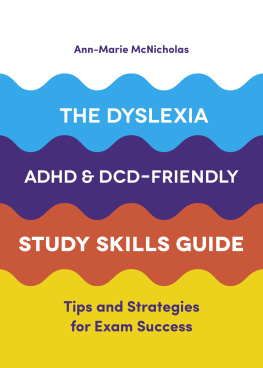
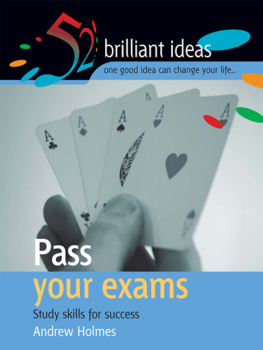
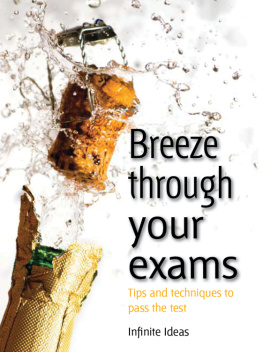
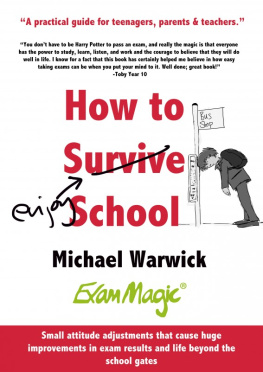
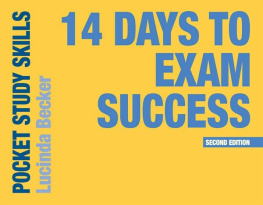
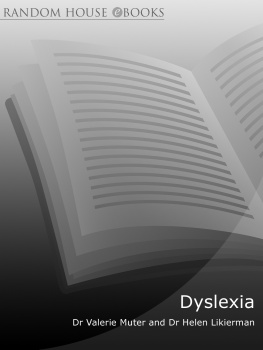
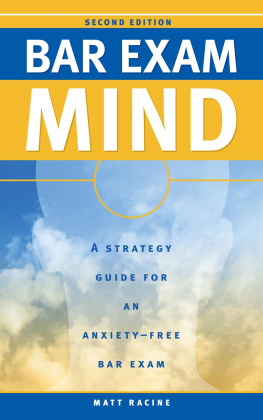

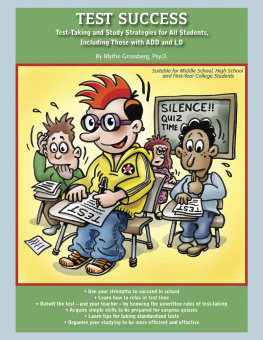


 can be downloaded at www.jkp.com/catalogue/book/9781787751774
can be downloaded at www.jkp.com/catalogue/book/9781787751774